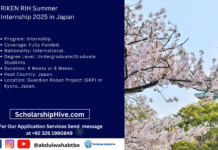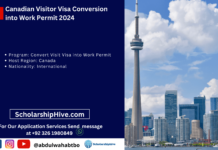Italy Seasonal Work Visa Process is open now. If you’re dreaming of working in Italy for a seasonal job, you might already know that the process of obtaining a visa can seem complicated. The Italy Seasonal Work Visa Process can be a bit of a maze, with various requirements and paperwork to navigate. But don’t worry! In this ultimate guide, we’ll break down everything you need to know to make this process as simple as possible. Whether you’re looking to work in agriculture, tourism, or hospitality, the right visa can make all the difference.
In this post, we’ll cover the 5 key steps you must follow to obtain your Italy Seasonal Work Visa in 2024, tips for increasing your chances of approval, common mistakes to avoid, and how to maximize your work experience in Italy. So, let’s dive right in and help you secure that dream job in Italy!
5 Key Steps to Master the Italy Seasonal Work Visa Process
1. Understanding the Italy Seasonal Work Visa
Before you get started with the application, it’s important to understand what the Italy Seasonal Work Visa is and who qualifies for it.
The Seasonal Work Visa allows non-EU nationals to work in Italy for a fixed period during specific times of the year. It’s a great opportunity for those looking to work in industries like agriculture, hospitality, and tourism, especially during peak seasons.
What Jobs Qualify for the Italy Seasonal Work Visa?
This visa is typically aimed at seasonal jobs that require a lot of labor during peak times. For example:
- Agriculture: Picking fruits and vegetables or working in vineyards.
- Tourism and Hospitality: Positions in hotels, resorts, and restaurants, especially during tourist season.
- Event Staffing: Seasonal positions in events, festivals, and fairs.
Understanding that this visa is temporary and specific to these types of roles is key to starting your application.
2. Eligibility Criteria for the Italy Seasonal Work Visa
To apply for the Italy Seasonal Work Visa, you’ll need to meet certain eligibility criteria.
General Requirements:
- Non-EU Citizen
- Employment Offer
- Valid Passport.
- Clean Criminal Record
Key Documentation Needed:
- Completed Visa Application Form
- Your employer must send you an official work contract that details your position, salary, and duration of employment.
- You need to show that you can financially support yourself during your stay in Italy. This can be shown through bank statements or proof of earnings.
- Proof of adequate health insurance during your stay in Italy is necessary.
- You may need to show that you have secured accommodation during your stay.
3. The Application Process: Step-by-Step
Now that you understand the basic requirements, let’s dive into the Italy Seasonal Work Visa application process.
Step 1: Secure Your Job Offer
Step 2: Gather Your Documents
- Your job contract
- A valid passport
- Proof of financial support
- Health insurance documentation
- Proof of accommodation
Step 3: Apply for the Visa at the Italian Embassy
Step 4: Wait for Processing
Step 5: Receive Your Visa and Prepare for Departure
4. Common Mistakes to Avoid When Applying
1. Incomplete Documentation
2. Not Meeting the Job Requirements
3. Missing Deadlines
4. Not Following Up
5. Tips for a Successful Italy Seasonal Work Experience
Once you’ve obtained your Italy Seasonal Work Visa and landed in Italy, your journey is just beginning. Here are some tips for making the most of your seasonal work experience in Italy:
1. Learn the Basics of Italian
2. Embrace the Italian Way of Life
3. Save Money for Future Travel
4. Build Connections
Cost of an Italy visa
The cost of an Italy visa varies depending on the type of visa you’re applying for. For a standard short-stay Schengen visa (which allows you to stay in Italy for up to 90 days within a 180-day period), the fees are as follows:
- Short-Stay Schengen Visa (Type C) for adults:
- €80 (approximately USD 85).
- Short-Stay Schengen Visa (Type C) for Children (6-12 years):
- €40 (approximately USD 42).
- Short-Stay Schengen Visa for Children under 6 years old:
- Free of charge.
- Long-Term National Visa (Type D):
- The cost is generally €116 (approximately USD 123), but it may vary slightly depending on the consulate or embassy where you apply.
- Seasonal Work Visa:
- The fee for a Seasonal Work Visa typically falls under the same range as other national visas (Type D), and it’s generally €116, though additional fees for processing or service may apply depending on your country of residence.
- Visa Application Service Fees:
- In addition to the visa fee, if you apply through an external service provider (like VFS Global), you may need to pay a service fee, usually around €25-€30.
Important Notes:
- The visa fees are generally non-refundable, even if your application is denied.
- Visa fees are usually paid in the local currency, and the exchange rates may vary.
- Family members of EU/EEA nationals or holders of certain visas may qualify for fee exemptions or reductions.
Duration of an Italy work permit
- Seasonal Work Visa: Typically, 3 to 9 months, with the possibility of extension for up to 12 months in total.
- Long-Term Work Visa (Type D): Usually granted for 1 to 2 years, with possible extensions.
- Self-Employment Visa: Typically, 1 to 2 years, renewable.
- EU Blue Card: Typically issued for 1 to 4 years, renewable.































